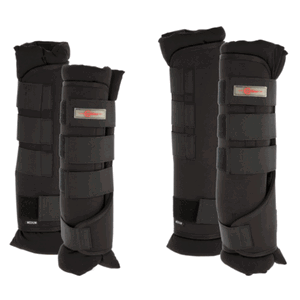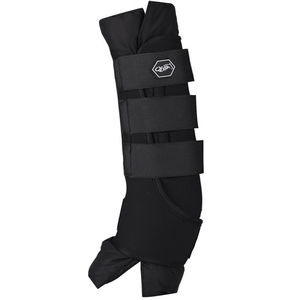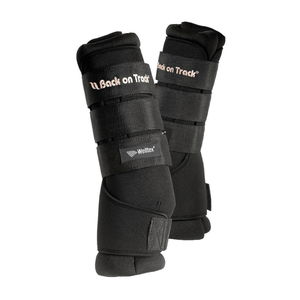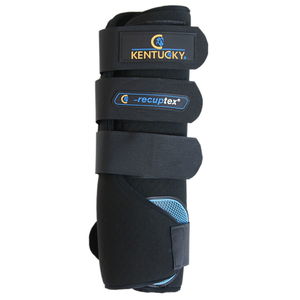Stable Boots
(70)Frequently asked questions about Stable Boots
Stable boots are used to protect the horse's legs from external impacts. They are usually made of padded materials such as neoprene or foam, which can provide some cushioning and absorb impact. Stable boots can be useful in various situations, such as when the stable consists of hard surfaces to minimize injury from shocks or kicks against walls. Stable boots are also useful for transport so that the legs are protected during travel in the horse trailer. Stable boots with ceramic fibers or magnetic fields can be helpful for tarnished legs because they reflect body heat and promote circulation. It is important that the stable boots fit correctly and are cleaned regularly to prevent pressure points on the horse's leg.
If your horse has a tendon injury, you or your four-legged friend can benefit from stable boots with magnetic fields or ceramic fibers. These models offer the advantage that they not only stabilize the tendons and joints but also warm and promote blood circulation. In many cases, this warmth leads to an acceleration of the healing process. If you want to use stable boots for tendon injury, it is best to talk to your veterinarian beforehand.
When transporting a horse, there is always a risk of injury, especially if the horse becomes unruly or bumps its legs against the walls of the horse trailer. Stable boots can help reduce the risk of such injuries by providing some protection. However, special shipping boots are better suited because they are sturdier and more durable than stable boots. They can also give the horse's legs more stability during transport in a trailer or horsebox.
In the summer, the use of stable boots is not essential. In the warm months, wearing stable boots can cause the horse's legs to overheat. However, there are exceptions where stable boots can be quite useful in the summer. For example, if the horse has a specific injury or sensitivity to the legs and needs extra protection. In such cases, you should consult with your veterinarian to determine the best course of action. In general, it is important to consider the individual needs and comfort of the horse. Good hygiene, regular inspection of the legs for injury or irritation, and adequate rest in the shade or stable can often be sufficient to protect the horse's legs in the summer.
When buying stable boots, there are several factors that you should pay attention to. First and foremost, the fit is important: the stable boots should fit snugly on the horse's legs and be neither too loose nor too tight, so as not to restrict the horse. Follow the manufacturer's sizing instructions and, if necessary, measure the legs to determine the correct size. Select stable boots made of high-quality materials that are both durable and easy to clean. In addition, the material should be breathable to prevent the legs from overheating. Stable boots should provide sufficient padding and cushioning to ensure protection from shocks and friction.































